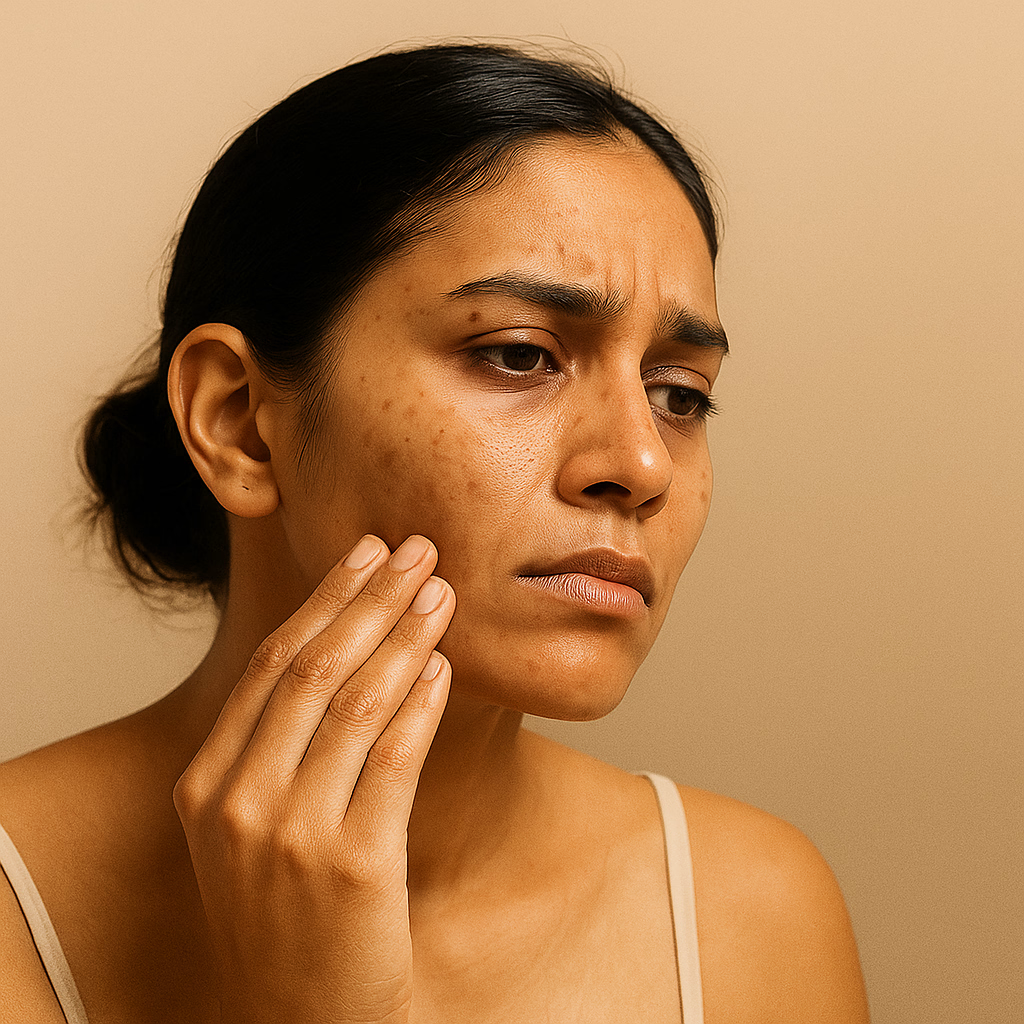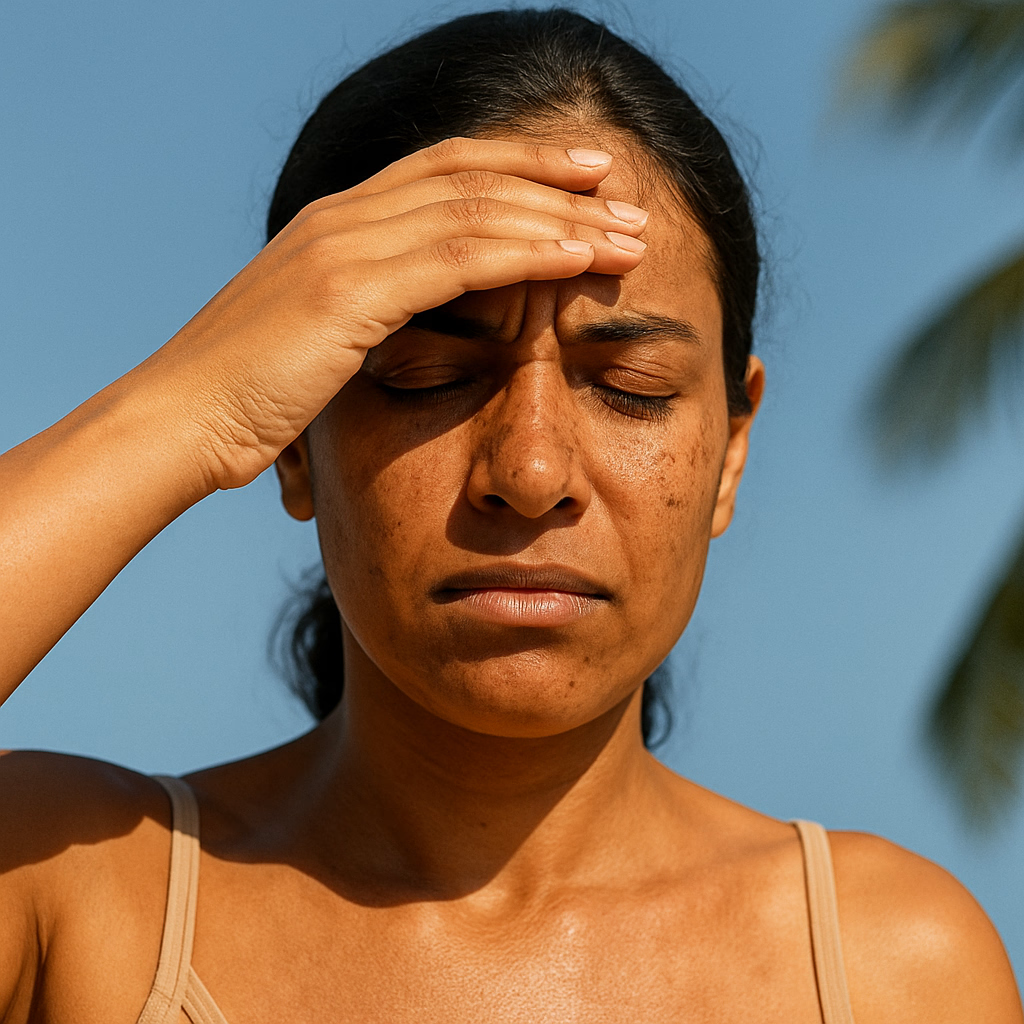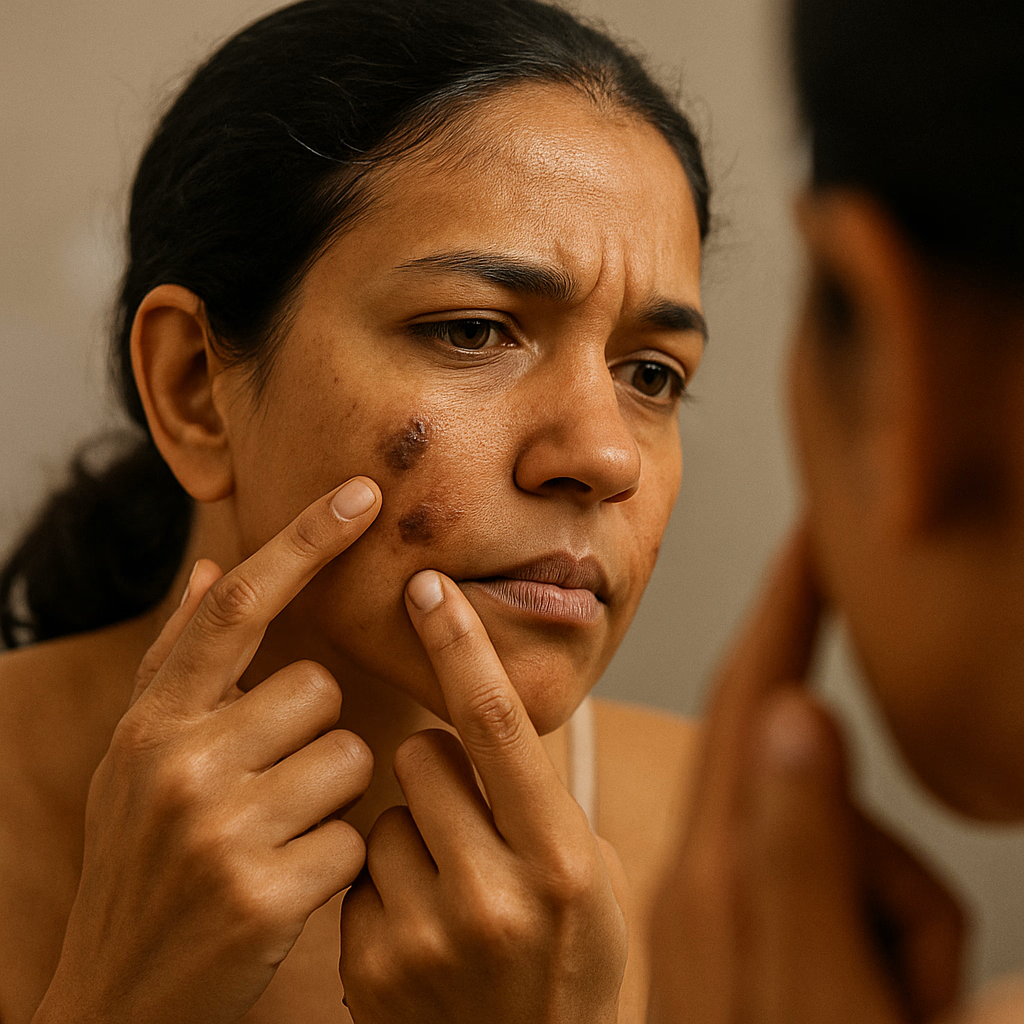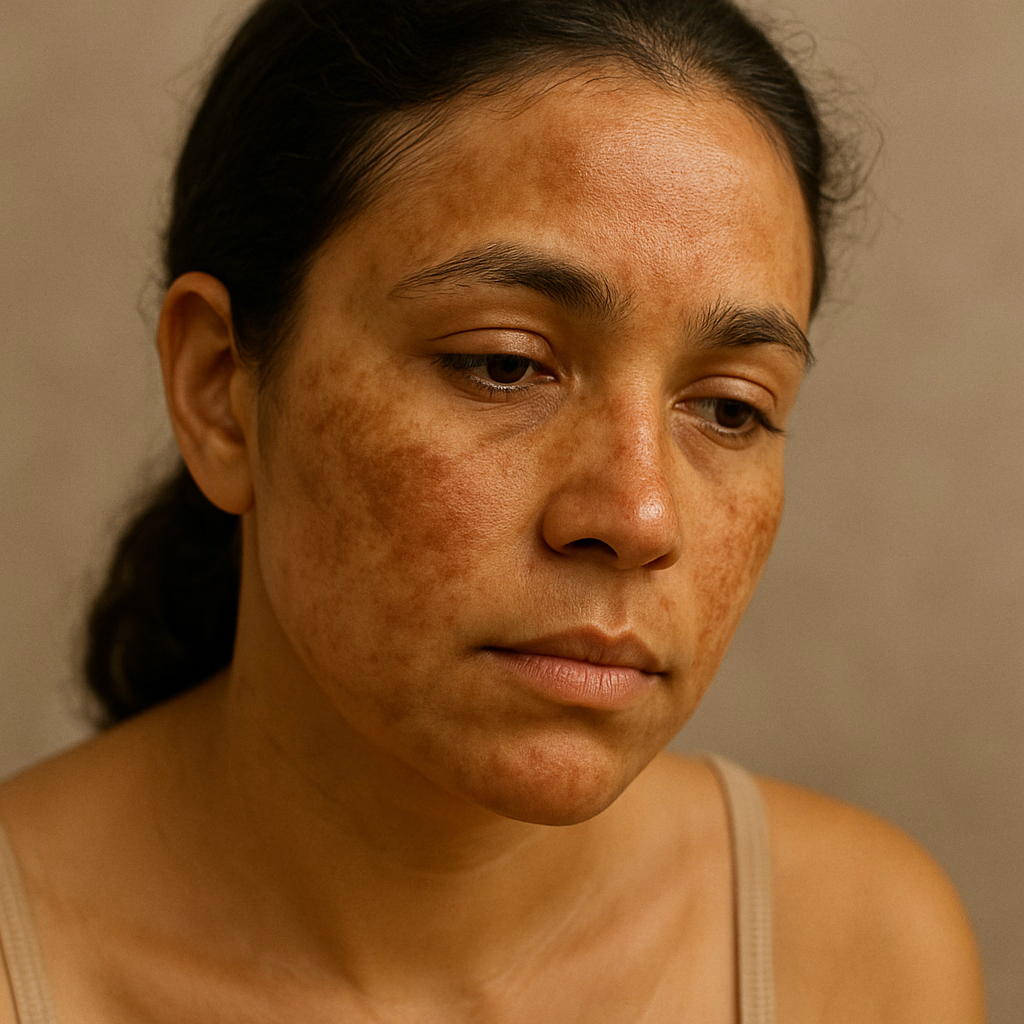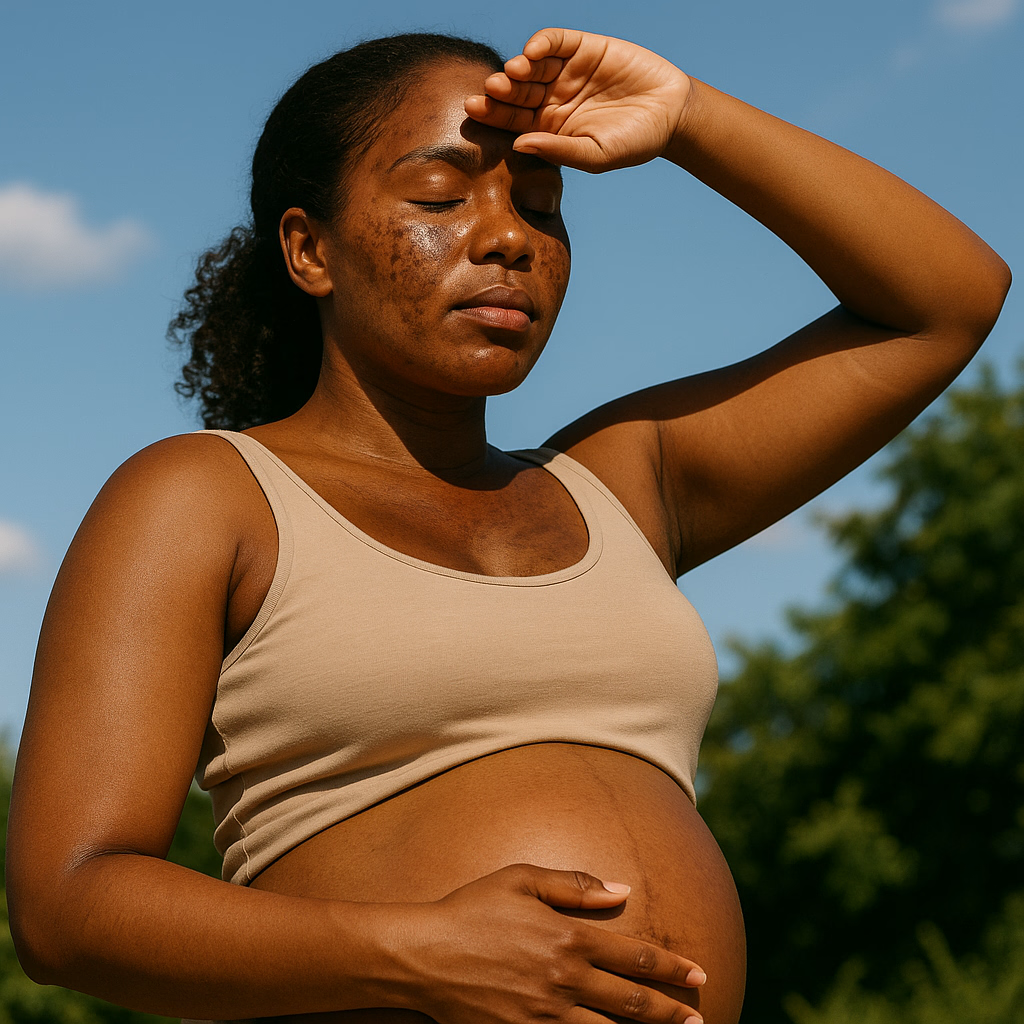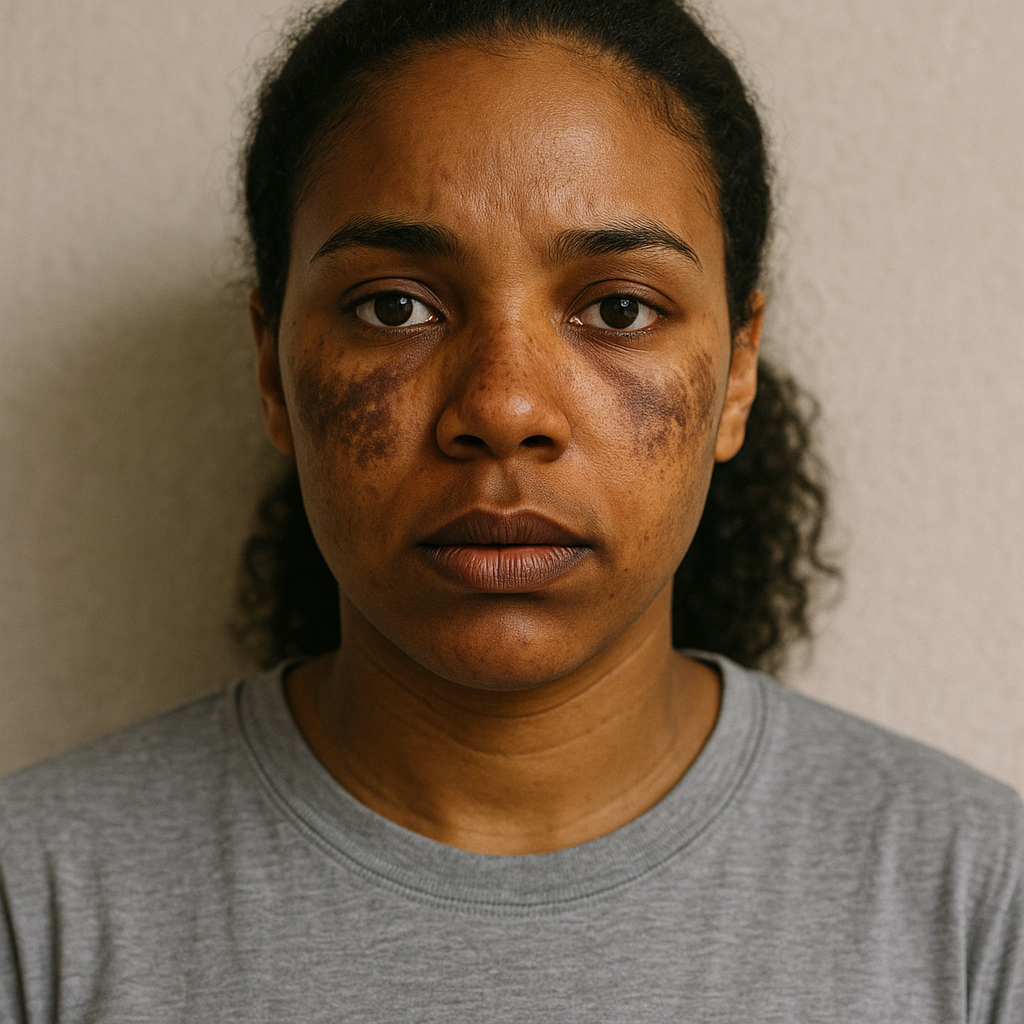Why is my skin getting darker?’ Does this question bother you whenever you look in the mirror? It’s not at all bad wanting to have a bright skin complexion.
We all put our best foot forward to achieve glowing skin. But have you ever wondered why your skin appears to be darker in some areas despite you putting in so much effort?
Dark spots and blotchy skin are common concerns faced by many. While factors like sun exposure, hormonal changes, and certain medical conditions may be beyond our control, a consistent skincare routine can make a significant difference. Let’s explore what causes skin discoloration and how you can effectively manage it.
6 Possible Causes of Skin Getting Darker
Also known as hyperpigmentation, skin darkening is a common woe that requires you to be specific about what products you apply to your skin.
Several factors can contribute to dark and dull skin. Understanding them will help you plan accordingly.
Although hyperpigmentation is not a medical condition, it may affect your skin aesthetics too deeply.
Being a skincare trouble for many, let’s look at some other prominent causes of skin darkening in detail:
1. Harsh Chemicals in the Skincare
The products you use on your skin can also be the reason for your skin getting darker.
Your facial skin is sensitive compared to the skin on the rest of the body.
So any regular skin care products you apply can manifest as dry patches, age spots, blemishes, and hyperpigmentation.
In addition, some cosmetic products formulated with toxins can trigger acne and scars, making your skin appear discolored and darker.
2. Exposure to the Sun
Melanin is a pigment responsible for the dark color of the skin and it gets triggered by prolonged and excessive exposure to the sun.
This is why one may experience one’s skin getting darker and duller in the affected areas.
So, if you mostly stay outdoors without any protection, your facial skin may start getting darker than the rest of the body lotion.
3. Past Skin Damage
Post-inflammatory hyperpigmentation is when your skin produces too much melanin after it has been injured or irritated.
It means darker skin in areas where you once had an allergic reaction, injury, acne, scars, and other types of inflammation.
So, the first line of treatment is to address the underlying skin inflammation. When the condition reduces, your skin lightens on its own.
This would help reduce darker skin tone by a few shades at the least.
4. Melasma
Melasma is a skin disorder that is most likely caused due to hormonal imbalance and the onset of pregnancy. Hyperpigmented patches can appear anywhere on the body, especially on the face, forehead, cheeks, nose, chin, and stomach. As a result, the skin becomes dull and uneven.
5. Pregnancy
Hormonal changes during pregnancy can make skin cells produce more melanin.
So if you are wondering why my facial skin is getting darker, it’s likely your pregnancy hormones.
Your skin tone may also darken in small patches scattered throughout the body. However, these changes will gradually fade post-delivery.
So if you expose your skin to the sun for longer durations while pregnant, you may risk skin tanning.
6. Addison’s disease
It is a medical condition in which the adrenal glands do not produce enough hormones, causing the skin to appear dark on areas like cheeks and lips. Consult your doctor if you have been observing dark patches on your skin without any reason. He may prescribe you medicines to stimulate hormones lacking in the body care.

